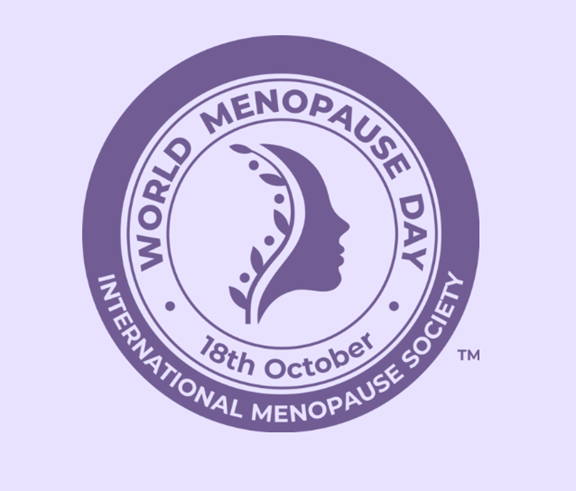World Menopause Day: A Call for Holistic Care in the Menopause Transition

Every year on October 18, World Menopause Day highlights a universal reality that half the world’s population will experience—but far too few feel adequately supported through the menopause transition.
For many women, perimenopause and menopause bring a confusing mix of symptoms—hot flashes, weight gain, sleep disruption, brain fog, anxiety, and more. Yet, most are offered little more than a prescription or reassurance that “it’s just part of aging.”
As a holistic practitioner, this awareness day presents a powerful opportunity to initiate a conversation with your patients and community about how integrative, lifestyle-based care can help women not just survive this phase but truly thrive.
A Growing Need for Whole-Person Menopause Care
In 2024, more than 55 million women in the US were reported to be in menopause, with another 1.3 million entering this stage each year. Yet studies show that many of them don’t receive individualized or comprehensive support. Traditional medicine tends to focus on symptom management—hormones, antidepressants, or sleep medications—without addressing the root causes or the whole-body changes taking place.
Women are looking for alternatives. Surveys reveal that over 60% of women in midlife prefer a natural, holistic approach to menopause management. This shift in demand has created a tremendous opportunity for practitioners trained in functional, integrative, and nutrition-based modalities.
Lifestyle Medicine: A New Foundation for Midlife Health
The field of lifestyle medicine has gained significant momentum in recent years. It focuses on using evidence-based lifestyle interventions—nutrition, physical activity, stress management, sleep, and social connection—to prevent, treat, and even reverse chronic conditions.
When applied to menopause, lifestyle medicine can be transformative. The decline in estrogen affects metabolism, inflammation, bone health, brain chemistry, and cardiovascular function. Addressing these shifts through daily habits rather than temporary fixes can dramatically improve long-term outcomes.
For example:
• Functional nutrition can reveal underlying needs that could help balance blood sugar, reduce hot flashes, and support hormone detoxification.
• Exercise and resistance training can preserve bone and muscle mass.
• Stress reduction techniques, such as mindfulness and breathing practices, can lower cortisol and minimize anxiety or insomnia.
• Social support—through group programs or women’s circles—can help normalize the experience and reduce isolation.
This whole-body approach empowers women to understand what’s happening physiologically and gives them the tools to take charge of their health during this transition.
The Power of Functional Nutrition in Menopause Support
Among lifestyle medicine strategies, functional nutrition stands out as one of the most powerful. It examines how food and nutrients impact each bodily system, and how individual differences in environment and lifestyle shape a woman’s unique needs during menopause.
Functional nutrition practitioners use nutritional blood chemistry analysis to identify nutrient deficiencies, gut imbalances, blood sugar dysregulation, and other deficiencies that can intensify menopausal symptoms. Through targeted dietary interventions and supplementation, practitioners can help patients restore metabolic balance and hormonal harmony.
Some key nutrition strategies include:
• Balancing macronutrients to stabilize energy and mood.
• Supporting liver detoxification pathways with cruciferous vegetables and antioxidants.
• Replenishing omega-3 fatty acids and magnesium to ease inflammation and muscle tension.
• Encouraging phytoestrogen-rich foods like flaxseed and fermented soy to support estrogen metabolism naturally.
• Focusing on gut health, as the microbiome plays a key role in hormone signaling and detoxification.
Functional nutrition goes beyond diet. It’s about understanding each woman’s biochemistry and creating a personalized nutrition plan that evolves as her body changes. The Holistic Health Solutions Functional Nutritional training can provide all the information you need to offer effective support to your patients.
How Practitioners Can Lead the Way
World Menopause Day offers more than an awareness opportunity: it’s a call to action for holistic practitioners to expand their role in midlife women’s health.
By integrating functional nutrition and lifestyle medicine into your existing services, you can:
• Address the root causes of hormonal imbalance.
• Offer natural, evidence-based support that complements other therapies.
• Position your practice as a trusted resource for women navigating midlife changes.
Simple ways to get involved:
• Offer a nutrition and lifestyle assessment for midlife women.
• Share educational posts or newsletters highlighting holistic menopause care.
The conversation around menopause is shifting from one of frustration and silence to empowerment and proactive care. As more women seek natural solutions, holistic practitioners have a vital role to play in guiding them toward health, balance, and renewed vitality.
This World Menopause Day, take the lead. Bring the message of holistic healing to the women who need it most and help redefine what healthy aging looks like for generations to come.